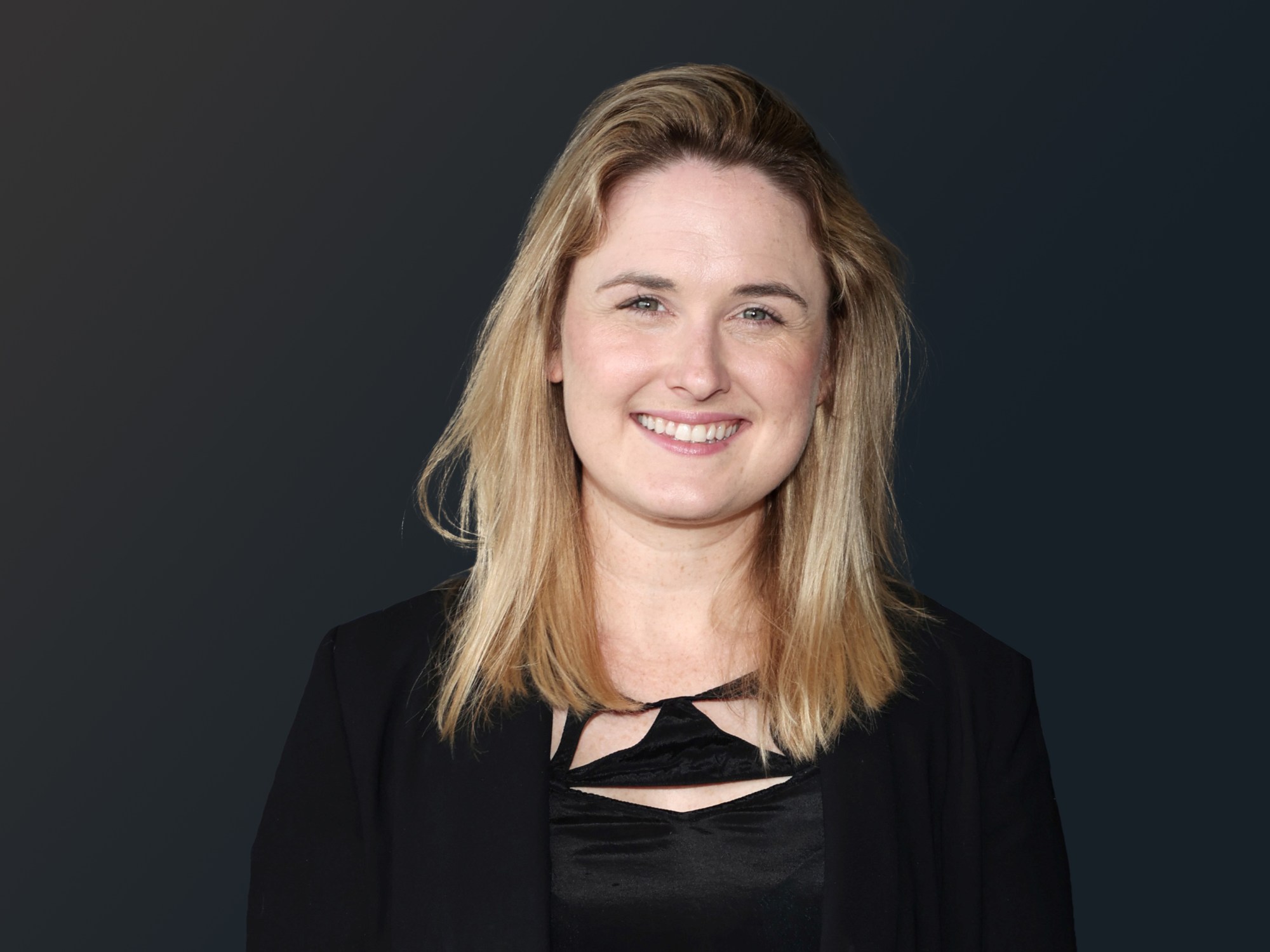
- Interviews
Cara Cusamano: The Force Behind Tribeca Festival 2023
Cara Cusamano is perhaps one of the busiest people in New York City these days, ahead of the opening of the Tribeca Festival (TF) 2023, in which she has a double role as Director and VP of Programming.
After being a regular attendee at the Festival’s first edition (2002), Cusamano became professionally involved in 2007, and has not stopped since, having held, she says, “every role within the programming team” so far.
Born in the shadow of a universal tragedy, the Tribeca Film Festival –as it was then known– was founded by Robert De Niro, Jane Rosenthal, and Craig Hatkoff in late 2001 to spur the economic and cultural revitalization of lower Manhattan following the 9/11 terrorist attacks.
The first edition was celebrated less than a year later, in May 2002, with the help of more than 1,300 volunteers. It was attended by more than 150,000 people in its five days of length. After 21 years, the Tribeca Festival has grown, building a reputation as one of the most respected cultural venues on the East Coast of the United States.
“With strong roots in independent film, Tribeca is synonymous with creative expression and entertainment,” reads its statement. “Tribeca champions emerging and established voices, discovers award-winning talent, curates innovative experiences, and introduces new ideas through exclusive premieres, exhibitions, conversations, and live performances.”
During the pandemic the festival was delayed and adapted, but not canceled. In July 2020, it launched one of the first large scale pop-up drive-in series across the nation to provide entertainment in a socially-distanced environment.
That year the festival went beyond its original neighborhood in Manhattan, as the screenings took place at the Rose Bowl in Pasadena (California), Dallas Cowboys AT&T Stadium in Arlington (Texas), Orchard Beach in The Bronx (NYC), and Nickerson Beach (Long Island, NY). The series employed local production staff and partnered with small food businesses that had been affected by the lockdown, according to Forbes.
Two years ago, after the pandemic had eased, the festival dropped “Film” from its name, as it had added a category dedicated to video games. Games nominated are presented online.
This year the festival runs from June 7 to 18. We talked to Cusamano by email this weekend about what this edition is bringing to audiences.
How many entries did the Tribeca Festival (TF) receive this year and from how many countries?
We received 12,323 film submissions from 127 filmmakers across 151 countries, including 93 world premieres.
When does the selection process normally start in the calendar, and what qualities must a movie have to be in the TF?
We are working on the festival year-round, conceptualizing programs and tracking projects. We officially open for submissions in late summer and close at the end of the year. What every programmer is always looking for is something we’ve never seen before. We want to be surprised and inspired – by the story, the craft, the performances. We are often the first people seeing a film outside of the team that made it, and it’s incredibly exciting to have that experience of discovery and to be able to play a part in sharing that experience with the world.
What makes TF different from other festivals, especially this year?
Tribeca prides itself on being a storytelling festival, which means there is a particularly unique cross-section of creators and mediums premiering new work with us each year. At Tribeca, audiences can experience new films, immersive experiences, TV and podcast premieres, and live music every night. We make a wide range of work and mediums easily accessible to general audiences so there is a truly unique atmosphere of discovery at the festival.
How is the TF’s jury chosen?
It’s a curation process much like selecting the films where we want to represent a wide range of unique perspectives who are going to engage with the work and each other in a meaningful way. We want to have an exciting, interdisciplinary group of jurors who bring a lot of different perspectives to how they are experiencing the films (or immersive projects, podcasts, scripts, etc).
Regarding the change in the calendar: the festival was celebrated in May during 2002-2004, then in April for many years. In 2021 it was moved to June. Any reason behind that change besides the pandemic? What have been the pros and cons of having an “early summer” festival right after Cannes?
The change in dates originally came about during the pandemic, when June dates allowed us to have a fully outdoor festival in a year when traditional festivals were impossible. We have had incredible audience enthusiasm over the last few years in June, as well as the opportunity to do more outdoor programming.
How did you personally get involved with TF in 2007?
I attended the first-ever Tribeca in 2002 and was a fan even before I started programming professionally. In 2007 I was programming for several other festivals and had the opportunity to join Tribeca’s screening committee, which I jumped at. I’ve watched over 7,000 films for Tribeca since then and held every role within the programming team. Being able to be a part of the programming process at every level has given me a huge amount of respect for the work and passion that goes into making an independent film, and into curating them!
How often do you watch movies in theaters and streaming? What is your favorite genre? Any classic you never get tired of watching?
I probably watch at least a movie a day when not programming, and more like three to five when in programming season. I have a very specific soft spot for creature features and will always rewatch Jaws if given the opportunity.